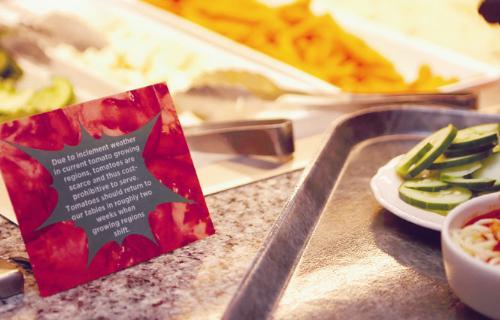Harvard students may be making do with scraggly salads in the face of a nationwide tomato famine, but diners at the University’s more posh eating establishments are still able to see red mixed in their greens.
A shortage of tomatoes throughout the country has forced Harvard University Dining Services (HUDS) to strike fresh tomatoes from its menus, according to Martin D. Breslin, executive chef for residential dining. But the Harvard Faculty Club (HFC) and HUDS-catered events have managed to hold strong to the red fruit.
“The tomato harvest has been the worst in recent history,” Breslin said. Hurricanes in Florida, torrential rains in Mexico, and flooding in California have led to a recent dearth.
The shortage has caused prices to skyrocket, tripling or quadrupling in some cases.
And those that are available are of such poor quality that they can’t be served.
“We don’t like to serve an inferior quality product in our dining halls,” Breslin said.
He questioned whether students would even be willing to eat tomatoes from the current harvest. He said the current crop is unripe and discolored, often with bruising on the exterior.
“Even if we did put what was available [in the dining halls], you’d look at it twice and go ‘ugh,’” he said.
Such a product isn’t worth the high prices it demands, he said. The normal price for a case of tomatoes is approximately $15, while current prices are close to $70.
HUDS has been able to substitute canned tomatoes into some of its recipes, he said.
Still, according to Undergraduate Council President Matthew W. Mahan ‘05, the shortage does not seem to have prevented HUDS’ Crimson Catering from serving tomatoes.
“I can confirm from experience that Crimson Catering has tomatoes,” Mahan said. He reports having seen tomatoes served at meetings catered by HUDS as recently as this week.
Like Crimson Catering, the HFC has also continued to serve tomatoes.
Michael A. Brentana, HFC’s executive chef, said that the increase in price has caused the Faculty Club to reduce the number of tomatoes it buys but not to stop serving the fruits altogether.
“We still have tomatoes. We still order them, but we don’t order as many,” Brentana said.














